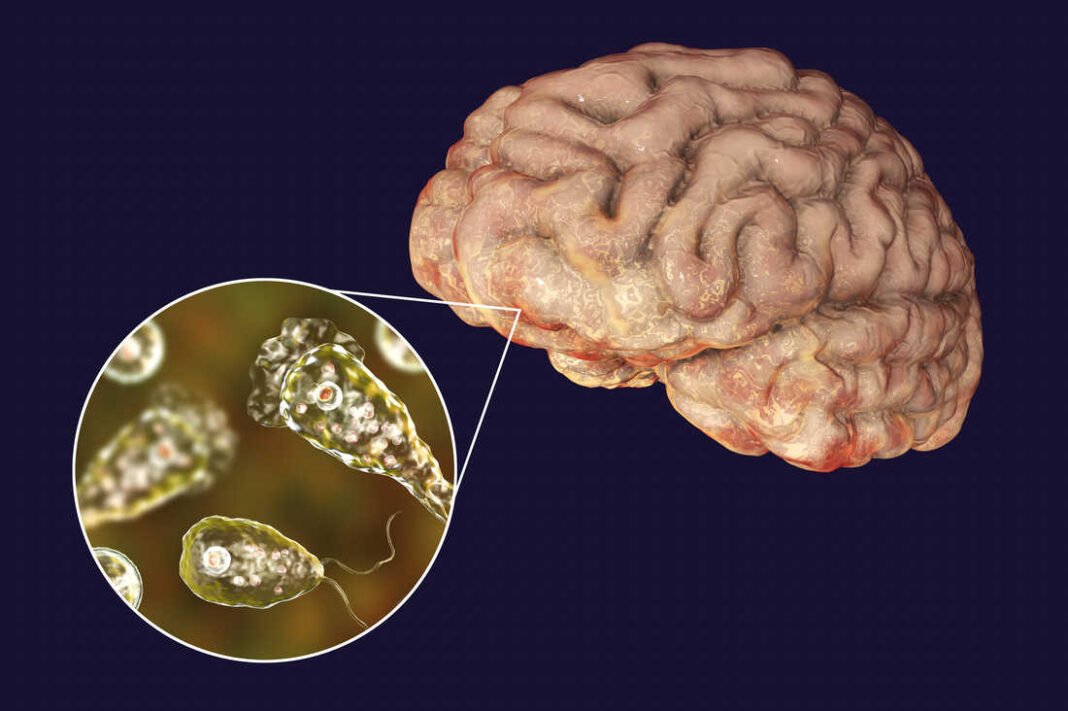Brain-eating amoeba infection, also known as primary amoebic meningoencephalitis (PAM), is a rare but serious condition caused by the Naegleria fowleri amoeba. This amoeba is commonly found in warm freshwater environments, such as lakes, hot springs, and poorly maintained swimming pools. While the infection is extremely rare, it can be life-threatening.
Causes: The primary cause of brain-eating amoeba infection is the exposure to contaminated water. The amoeba enters the body through the nose, typically when swimming or diving in warm freshwater. Once inside, it travels to the brain, leading to inflammation and severe damage.
Symptoms: The symptoms of brain-eating amoeba infection usually appear within one to nine days after exposure. Initial symptoms may resemble those of a common cold, including headache, fever, and nausea. As the infection progresses, more severe symptoms may develop, such as stiff neck, confusion, seizures, hallucinations, and coma. If left untreated, the infection can be fatal.
Prevention:
Although brain-eating amoeba infection is rare, there are several measures you can take to minimize your risk:
- Avoid warm freshwater: It’s best to avoid swimming or diving in warm freshwater environments, especially those with stagnant or poorly maintained water sources. If you do participate in these activities, use nose clips or keep your head above water.
- Use safe water sources: Stick to properly treated and chlorinated swimming pools, as well as well-maintained recreational water facilities. These are less likely to harbor the amoeba.
- Keep swimming pools clean: Regularly maintain and clean your home swimming pool to ensure proper disinfection. Follow the recommended guidelines for pool hygiene and water quality.
- Use boiled or distilled water: When cleaning your nasal passages, such as during nasal irrigation or sinus rinsing, use boiled or distilled water. This helps eliminate any potential exposure to the amoeba.
- Educate yourself: Stay informed about the presence of brain-eating amoeba in your area. Pay attention to any advisories or warnings issued by health authorities regarding contaminated water sources.
Treatment:
Early diagnosis and prompt treatment are crucial in improving the chances of survival. Antifungal and antiparasitic medications may be prescribed to help combat the infection. Supportive care, including managing symptoms and providing hydration, is also essential. However, due to the aggressive nature of the infection, the prognosis can still be poor even with treatment.
It’s important to remember that brain-eating amoeba infection is extremely rare. By following the preventive measures mentioned above, you can significantly reduce the risk of exposure. If you experience symptoms after swimming in warm freshwater or suspect possible exposure, seek immediate medical attention. Remember, early detection and treatment can make a significant difference in the outcome of this rare but serious infection.



